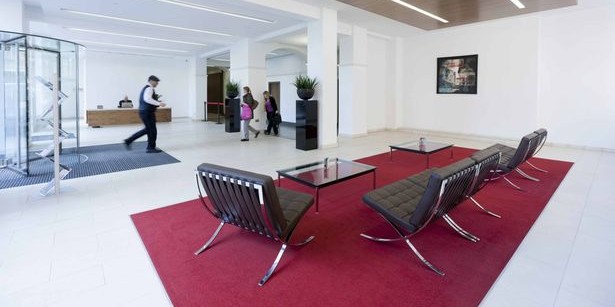Company operates more than 1m sq ft of commercial space in Liverpool at the Plaza, the Cotton Exchange, Queen Insurance Buildings, Exchange Court, Oriel Chambers, Burlington House and St Hugh’s House. Tony McDonough reports

North West property firm Bruntwood is reporting a 5% rise in pre-tax profits in 2017 to £71.6m with turnover also up 11% to £131.5m.
The company operates more than 1m sq ft of commercial space across seven Liverpool sites – the Plaza, the Cotton Exchange, Queen Insurance Buildings, Exchange Court, Oriel Chambers, Burlington House and St Hugh’s House.
Overall the group has more than £1bn of assets under ownership across 100-plus properties in Liverpool, Manchester, Leeds and Birmingham and a development pipeline of £1.4bn.
Net assets increased 14% to £539m, up from £473m in 2016, while property valuations increased by £54.2m (+5%) to £1.107bn.
Chief executive Chris Oglesby said: “Our business is set against a backdrop of change and uncertainty in the wider world. We are witnessing unprecedented levels of disruption in many areas of life driven by rapid technological and digital developments.
“While the property sector is traditionally slow to change, Bruntwood has always sought to disrupt the market through innovation of our customer proposition.
“We continue to be restless, developing new models that continue to shape markets, meet the demands of the new growth sectors and the new patterns of living and working and are aligned to the strategies of our cities.”
The company itself employs 650 people with many more employed by the 3,000 companies that occupy its spaces.
During 2017 it invested £17m in office refurbishments and capital improvements and £93.2m in development schemes, including at Alderley Park in Cheshire and Circle Square, its £750m joint venture with Select Property Group.
It also donated £4.8m to local charities and community initiatives, an increase of £1.3m on 2016. Good causes spanned the environment, the arts, medical research, education and tackling social inequality.

